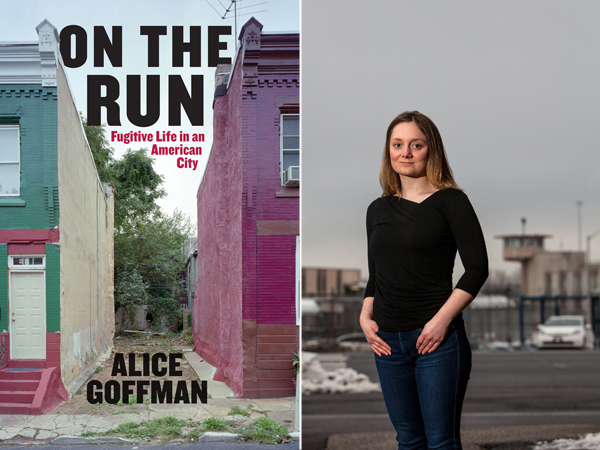
I just finished reading Alice Goffman‘s in-the-field study of Philadelphia’s black slums, On The Run: Fugitive Life in an American City. I recommend it highly. It’s a wonderful piece of reporting. It’s also nuts. It’s worth reading for both reasons.
Goffman — a slight, attractive white girl and the daughter of famous sociologist Erving Goffman — lived for six years in a place she calls Sixth Street in Philly. There she befriended various black drug dealers and gangsters and their girlfriends. Completely losing her objectivity along the way, she actually reached a point where she chauffeured one of these thugs around town while he, his gun on his lap, searched for a man he wanted to kill. She’s lucky he didn’t find him. I don’t think that would’ve been sociology exactly. More like felony murder.
Anyway, Goffman writes well and observes well. She brings these dysfunctional characters and their milieu thoroughly to life. Then she proceeds to explain to us that “this book is… a close-up look at young men and women living in one poor and segregated Black community transformed by unprecedented levels of imprisonment and by the more hidden systems of policing and supervision that have accompanied them.” Or as they put it in the musical West Side Story: They ain’t no delinquents, they’re misunderstood.
This is silliness, of course. My City Journal colleague Heather Mac Donald — herself one of the nation’s truly great reporters — takes Goffman’s view to pieces in this excellent article.
Goffman’s own material demolishes this thesis. On the Run documents a world of predation and law-of-the-jungle mores, riven with violence and betrayal. Far from being the hapless victims of random “legal entanglements”—Goffman’s euphemism for the foreseeable consequences of lawless behavior—her subjects create their own predicaments through deliberate involvement in crime.
But Heather may be a little unfair in this. I think Goffman is at least honest enough to be incoherent in her theories. Even while rattling on about the evils of the criminal justice system, she acknowledges that “long before the rise in imprisonment rates, Black men distrusted the police and faced substantial difficulties in finding work and participating in their families’ lives.” And she admits the police have limited tools for dealing with the crime in these neighborhoods. Arresting bad guys is what we pay them to do.
But if Goffman had come right out and said what Heather said, I suspect she would have been thrown out of her PHD program at Princeton. Even as it is, she’s been slandered by the usual leftist gang who don’t want the public to see the reality of black crime.
Also, for myself, while I think it’s nonsensical to blame the police for the criminality of poor black people, it is not nonsensical to note that the dysfunctions of modern poverty are generationally self-replicating. A kid with no father and a crack whore for a mother is going to have a difficult time learning moral self- control — and that’s going to be true of the fatherless child he fathers too. I do not believe such behaviors are related to race in any way. They’ve appeared too often in too many people throughout history. Read Germinal by Emile Zola. Read Oliver Twist by Charles Dickens. Read some of the writing about the Irish in England during the Victorian period. The poor have children out of wedlock and fatherless children commit more crimes.
The police can’t do a damn thing about this except arrest the criminals. That’s their job. It’s sad that the sociology establishment is so intent on its visions of racism and on blaming theoretically white authorities for black dysfunction. The distorting lens of this leftist narrative means even an observer as talented as Goffman can’t see what she sees, and sociology itself becomes a useless exercise in solipsism.
It’s the truth that sets us free.









Join the conversation as a VIP Member